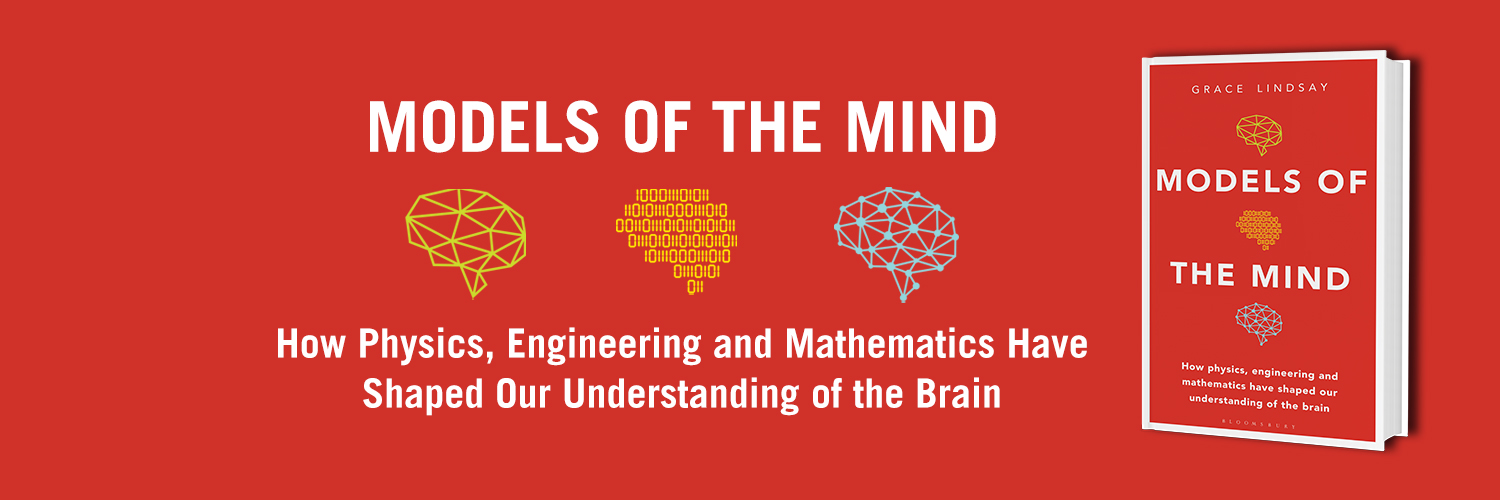Grace wrote a book! And she talked to Brain Inspired host Paul Middlebrooks about it.
The book is about the many different ways mathematical methods have influenced neuroscience, from models of single cells all the way up to equations to explain behavior. You can learn more about the book and how to get it in e-book, audiobook, and hard cover worldwide here!
On this cross-posting of Brain Inspired, Grace talks about the book and the field of computational neuroscience more generally. Give it a listen and go check out other episodes of Brain Inspired for more great conversations.
The episode also contains a short intro from Grace about the state of Unsupervised Thinking (hint: it's not coming back 😥).
To listen to (or download) this episode, (right) click here or use the player below
As always, our jazzy theme music "Quirky Dog" is courtesy of Kevin MacLeod (incompetech.com)

